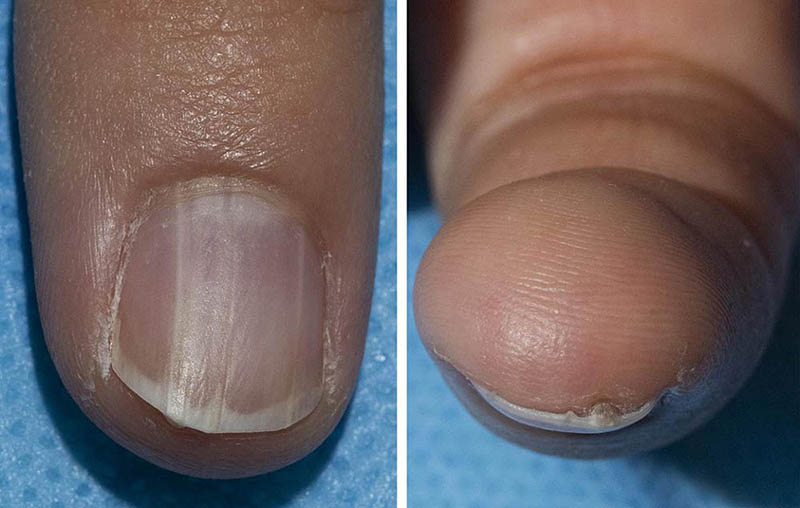Benign nail condition linked to rare syndrome that greatly increases cancer risk
NIH researchers suggest conducting nail evaluation of affected patients and at-risk family members
Scientists at the National Institutes of Health (NIH) have discovered that the presence of a benign nail abnormality may lead to the diagnosis of a rare inherited disorder that increases the risk of developing cancerous tumors of the skin, eyes, kidneys and the tissue that lines the chest and abdomen (e.g., the mesothelium). The condition, known as BAP1 tumor predisposition syndrome, is caused by mutations in the BAP1 gene, which normally acts as a tumor suppressor, among other functions. The findings are published in JAMA Dermatology and will be presented today at the Society for Investigative Dermatology Annual Meeting in Dallas.
Scientists happened upon the discovery while studying participants who were enrolled in a screening for BAP 1 variants at the NIH Clinical Center. As part of the study, a dermatology screening was performed at enrollment and annually for participants aged 2 and older. The cohort in the current study included 47 individuals with BAP1 tumor predisposition syndrome from 35 families.
“When asked about nail health during a baseline genetic assessment, a very astute patient reported that he had noticed subtle changes in his nails,” said co-lead author and genetic counselor Alexandra Lebensohn, M.S., of NIH’s National Cancer Institute (NCI). “His comment prompted us to systematically evaluate other participants for nail changes and uncover this new finding.”
This page was last updated on Wednesday, May 29, 2024
